afterLoad (456.22KB) (500μs)
afterInitialise (1.27MB) (424ms)
afterRoute (840.48KB) (128ms)
beforeRenderComponent com_tags (20.75KB) (1.78ms)
afterRenderComponent com_tags (1.68MB) (1.21s)
afterDispatch (28.16KB) (38.4ms)
beforeRenderRawModule mod_articles_category (READ MORE...) (423.86KB) (206ms)
Before Access::preloadComponents (all components) (50.9KB) (7.41ms)
After Access::preloadComponents (all components) (103.05KB) (26.13ms)
Before Access::getAssetRules (id:8 name:com_content) (840B) (19μs)
After Access::getAssetRules (id:8 name:com_content) (7.05KB) (36μs)
afterRenderRawModule mod_articles_category (READ MORE...) (5.21KB) (2.58s)
beforeRenderRawModule mod_custom (BOOST YOUR IMMUNE DEFENSE) (6.45KB) (28μs)
afterRenderRawModule mod_custom (BOOST YOUR IMMUNE DEFENSE) (3.8KB) (1.5ms)
beforeRenderRawModule mod_tags_popular (Search) (2.36KB) (23μs)
afterRenderRawModule mod_tags_popular (Search) (17.77KB) (3.63s)
beforeRenderRawModule mod_custom (Get additionel and more detailed knowledge ) (816B) (24μs)
afterRenderRawModule mod_custom (Get additionel and more detailed knowledge ) (1.55KB) (41μs)
beforeRenderRawModule mod_custom (Overview of vitamins, minerals, and essential fatty acids) (768B) (10μs)
afterRenderRawModule mod_custom (Overview of vitamins, minerals, and essential fatty acids) (960B) (2.05ms)
beforeRenderRawModule mod_custom (Q10 goes by many names) (608B) (26μs)
afterRenderRawModule mod_custom (Q10 goes by many names) (928B) (47μs)
beforeRenderRawModule mod_custom (Check this before you buy a Q10 product) (752B) (9μs)
afterRenderRawModule mod_custom (Check this before you buy a Q10 product) (944B) (20μs)
beforeRenderRawModule mod_custom (Are you taking supplements) (736B) (9μs)
afterRenderRawModule mod_custom (Are you taking supplements) (1.03KB) (17μs)
beforeRenderRawModule mod_custom (Weight loss that works) (736B) (8μs)
afterRenderRawModule mod_custom (Weight loss that works) (1.03KB) (18μs)
beforeRenderRawModule mod_custom (Antiaging) (720B) (8μs)
afterRenderRawModule mod_custom (Antiaging) (912B) (17μs)
beforeRenderRawModule mod_menu (Are you getting enough vitamins and minerals?) (2.5KB) (10μs)
afterRenderRawModule mod_menu (Are you getting enough vitamins and minerals?) (22.39KB) (451μs)
beforeRenderRawModule mod_menu (The key to increased well-being) (736B) (16μs)
afterRenderRawModule mod_menu (The key to increased well-being) (17.83KB) (216μs)
beforeRenderRawModule mod_menu (Did you know.....) (720B) (13μs)
afterRenderRawModule mod_menu (Did you know.....) (25.52KB) (37.92ms)
beforeRenderRawModule mod_custom (Useful Links) (1.06KB) (25μs)
afterRenderRawModule mod_custom (Useful Links) (1.02KB) (38μs)
beforeRenderRawModule mod_custom (Chronic fatigue tied Alan to his bed but Q10 capsules saved him:) (244.28KB) (41.98ms)
afterRenderRawModule mod_custom (Chronic fatigue tied Alan to his bed but Q10 capsules saved him:) (1.06KB) (46μs)
beforeRenderModule mod_custom (Chronic fatigue tied Alan to his bed but Q10 capsules saved him:) (768B) (4μs)
afterRenderModule mod_custom (Chronic fatigue tied Alan to his bed but Q10 capsules saved him:) (1.3KB) (49μs)
beforeRenderRawModule mod_custom (Cholesterol-lowering without side effects:) (368B) (12μs)
afterRenderRawModule mod_custom (Cholesterol-lowering without side effects:) (1.06KB) (22.36ms)
beforeRenderModule mod_custom (Cholesterol-lowering without side effects:) (752B) (7μs)
afterRenderModule mod_custom (Cholesterol-lowering without side effects:) (1.28KB) (57μs)
beforeRenderModule mod_articles_category (READ MORE...) (20.82KB) (409μs)
afterRenderModule mod_articles_category (READ MORE...) (1.25KB) (38μs)
beforeRenderModule mod_custom (BOOST YOUR IMMUNE DEFENSE) (6.81KB) (13μs)
afterRenderModule mod_custom (BOOST YOUR IMMUNE DEFENSE) (1.28KB) (27μs)
beforeRenderModule mod_tags_popular (Search) (1.98KB) (12μs)
afterRenderModule mod_tags_popular (Search) (1.27KB) (24μs)
beforeRenderModule mod_custom (Get additionel and more detailed knowledge ) (1.17KB) (13μs)
afterRenderModule mod_custom (Get additionel and more detailed knowledge ) (1.3KB) (23μs)
beforeRenderModule mod_custom (Overview of vitamins, minerals, and essential fatty acids) (384B) (8μs)
afterRenderModule mod_custom (Overview of vitamins, minerals, and essential fatty acids) (1.31KB) (19μs)
beforeRenderModule mod_custom (Q10 goes by many names) (208B) (14.6ms)
afterRenderModule mod_custom (Q10 goes by many names) (1.27KB) (62μs)
beforeRenderModule mod_custom (Check this before you buy a Q10 product) (352B) (24μs)
afterRenderModule mod_custom (Check this before you buy a Q10 product) (1.28KB) (25μs)
beforeRenderModule mod_custom (Are you taking supplements) (352B) (11μs)
afterRenderModule mod_custom (Are you taking supplements) (1.28KB) (29μs)
beforeRenderModule mod_custom (Weight loss that works) (336B) (10μs)
afterRenderModule mod_custom (Weight loss that works) (1.27KB) (20μs)
beforeRenderModule mod_custom (Antiaging) (336B) (8μs)
afterRenderModule mod_custom (Antiaging) (3.77KB) (19μs)
beforeRenderModule mod_menu (Are you getting enough vitamins and minerals?) (2.13KB) (11μs)
afterRenderModule mod_menu (Are you getting enough vitamins and minerals?) (1.3KB) (19μs)
beforeRenderModule mod_menu (The key to increased well-being) (352B) (9μs)
afterRenderModule mod_menu (The key to increased well-being) (1.28KB) (23μs)
beforeRenderModule mod_menu (Did you know.....) (336B) (22μs)
afterRenderModule mod_menu (Did you know.....) (1.27KB) (21μs)
beforeRenderModule mod_custom (Useful Links) (1.44KB) (9μs)
afterRenderModule mod_custom (Useful Links) (1.27KB) (33μs)
beforeRenderRawModule mod_menu (Main Menu - English) (29.14KB) (13.17ms)
afterRenderRawModule mod_menu (Main Menu - English) (192.45KB) (33.06ms)
beforeRenderModule mod_menu (Main Menu - English) (720B) (6μs)
afterRenderModule mod_menu (Main Menu - English) (4.86KB) (68μs)
beforeRenderRawModule mod_languages (Sprogskift) (3.94KB) (21μs)
afterRenderRawModule mod_languages (Sprogskift) (22.56KB) (40.03ms)
beforeRenderModule mod_languages (Sprogskift) (720B) (7μs)
afterRenderModule mod_languages (Sprogskift) (5.31KB) (24μs)
beforeRenderRawModule mod_finder () (6.34KB) (13μs)
afterRenderRawModule mod_finder () (128.59KB) (117ms)
beforeRenderModule mod_finder () (704B) (5μs)
afterRenderModule mod_finder () (3.29KB) (37μs)
beforeRenderRawModule mod_custom () (6.62KB) (148μs)
afterRenderRawModule mod_custom () (22.66KB) (49.57ms)
beforeRenderModule mod_custom () (704B) (6μs)
afterRenderModule mod_custom () (1.23KB) (60μs)
beforeRenderRawModule mod_menu (Main Menu - English) (5.07KB) (122μs)
afterRenderRawModule mod_menu (Main Menu - English) (6.3KB) (30.3ms)
beforeRenderModule mod_menu (Main Menu - English) (720B) (5μs)
afterRenderModule mod_menu (Main Menu - English) (1.25KB) (58μs)
beforeRenderRawModule mod_languages (Sprogskift Mobil) (912B) (20μs)
afterRenderRawModule mod_languages (Sprogskift Mobil) (3.89KB) (21.24ms)
beforeRenderModule mod_languages (Sprogskift Mobil) (720B) (7μs)
afterRenderModule mod_languages (Sprogskift Mobil) (1.27KB) (38μs)
beforeRenderRawModule mod_finder () (2.3KB) (12μs)
afterRenderRawModule mod_finder () (6.29KB) (49.38ms)
beforeRenderModule mod_finder () (704B) (5μs)
afterRenderModule mod_finder () (1.23KB) (54μs)
beforeRenderRawModule mod_custom () (8.66KB) (191μs)
afterRenderRawModule mod_custom () (904B) (164μs)
beforeRenderModule mod_custom () (704B) (2μs)
afterRenderModule mod_custom () (2.43KB) (24μs)
beforeRenderRawModule mod_custom () (688B) (16.01ms)
afterRenderRawModule mod_custom () (896B) (12.26ms)
beforeRenderModule mod_custom () (704B) (6μs)
afterRenderModule mod_custom () (2.71KB) (35μs)
afterRender (264.42KB) (77.35ms)
| 1 x afterRenderRawModule mod_tags_popular (Search) (17.77KB) (41.04%) | 3.63s |
| 1 x afterRenderRawModule mod_articles_category (READ MORE...) (5.21KB) (29.11%) | 2.58s |
| 1 x afterRenderComponent com_tags (1.68MB) (13.71%) | 1.21s |
| 1 x afterInitialise (1.27MB) (4.8%) | 424.42ms |
| 1 x beforeRenderRawModule mod_articles_category (READ MORE...) (423.86KB) (2.32%) | 205.51ms |
| 1 x afterRoute (840.48KB) (1.45%) | 127.97ms |
| 1 x afterRenderRawModule mod_finder () (128.59KB) (1.32%) | 117.20ms |
| 1 x afterRender (264.42KB) (0.87%) | 77.35ms |
| 1 x afterRenderRawModule mod_custom () (22.66KB) (0.56%) | 49.57ms |
| 1 x afterRenderRawModule mod_finder () (6.29KB) (0.56%) | 49.38ms |
| 1 x beforeRenderRawModule mod_custom (Chronic fatigue tied Alan to his bed but Q10 capsules saved him:) (244.28KB) (0.47%) | 41.98ms |
| 1 x afterRenderRawModule mod_languages (Sprogskift) (22.56KB) (0.45%) | 40.03ms |
| 1 x afterDispatch (28.16KB) (0.43%) | 38.40ms |
| 1 x afterRenderRawModule mod_menu (Did you know.....) (25.52KB) (0.43%) | 37.92ms |
| 1 x afterRenderRawModule mod_menu (Main Menu - English) (192.45KB) (0.37%) | 33.06ms |
| 1 x afterRenderRawModule mod_menu (Main Menu - English) (6.3KB) (0.34%) | 30.30ms |
| 1 x After Access::preloadComponents (all components) (103.05KB) (0.3%) | 26.13ms |
| 1 x afterRenderRawModule mod_custom (Cholesterol-lowering without side effects:) (1.06KB) (0.25%) | 22.36ms |
| 1 x afterRenderRawModule mod_languages (Sprogskift Mobil) (3.89KB) (0.24%) | 21.24ms |
| 1 x beforeRenderRawModule mod_custom () (688B) (0.18%) | 16.01ms |
| 1 x beforeRenderModule mod_custom (Q10 goes by many names) (208B) (0.16%) | 14.60ms |
| 1 x beforeRenderRawModule mod_menu (Main Menu - English) (29.14KB) (0.15%) | 13.17ms |
| 1 x afterRenderRawModule mod_custom () (896B) (0.14%) | 12.26ms |
| 1 x Before Access::preloadComponents (all components) (50.9KB) (0.08%) | 7.41ms |
| 1 x afterRenderRawModule mod_custom (Overview of vitamins, minerals, and essential fatty acids) (960B) (0.02%) | 2.05ms |
| 1 x beforeRenderComponent com_tags (20.75KB) (0.02%) | 1.78ms |
| 1 x afterRenderRawModule mod_custom (BOOST YOUR IMMUNE DEFENSE) (3.8KB) (0.02%) | 1.50ms |
| 1 x afterLoad (456.22KB) (0.01%) | 500μs |
| 1 x afterRenderRawModule mod_menu (Are you getting enough vitamins and minerals?) (22.39KB) (0.01%) | 451μs |
| 1 x beforeRenderModule mod_articles_category (READ MORE...) (20.82KB) (0%) | 409μs |
| 1 x afterRenderRawModule mod_menu (The key to increased well-being) (17.83KB) (0%) | 216μs |
| 1 x beforeRenderRawModule mod_custom () (8.66KB) (0%) | 191μs |
| 1 x afterRenderRawModule mod_custom () (904B) (0%) | 164μs |
| 1 x beforeRenderRawModule mod_custom () (6.62KB) (0%) | 148μs |
| 1 x beforeRenderRawModule mod_menu (Main Menu - English) (5.07KB) (0%) | 122μs |
| 1 x afterRenderModule mod_menu (Main Menu - English) (4.86KB) (0%) | 68μs |
| 1 x afterRenderModule mod_custom (Q10 goes by many names) (1.27KB) (0%) | 62μs |
| 1 x afterRenderModule mod_custom () (1.23KB) (0%) | 60μs |
| 1 x afterRenderModule mod_menu (Main Menu - English) (1.25KB) (0%) | 58μs |
| 1 x afterRenderModule mod_custom (Cholesterol-lowering without side effects:) (1.28KB) (0%) | 57μs |
| 1 x afterRenderModule mod_finder () (1.23KB) (0%) | 54μs |
| 1 x afterRenderModule mod_custom (Chronic fatigue tied Alan to his bed but Q10 capsules saved him:) (1.3KB) (0%) | 49μs |
| 1 x afterRenderRawModule mod_custom (Q10 goes by many names) (928B) (0%) | 47μs |
| 1 x afterRenderRawModule mod_custom (Chronic fatigue tied Alan to his bed but Q10 capsules saved him:) (1.06KB) (0%) | 46μs |
| 1 x afterRenderRawModule mod_custom (Get additionel and more detailed knowledge ) (1.55KB) (0%) | 41μs |
| 1 x afterRenderRawModule mod_custom (Useful Links) (1.02KB) (0%) | 38μs |
| 1 x afterRenderModule mod_articles_category (READ MORE...) (1.25KB) (0%) | 38μs |
| 1 x afterRenderModule mod_languages (Sprogskift Mobil) (1.27KB) (0%) | 38μs |
| 1 x afterRenderModule mod_finder () (3.29KB) (0%) | 37μs |
| 1 x After Access::getAssetRules (id:8 name:com_content) (7.05KB) (0%) | 36μs |
| 1 x afterRenderModule mod_custom () (2.71KB) (0%) | 35μs |
| 1 x afterRenderModule mod_custom (Useful Links) (1.27KB) (0%) | 33μs |
| 1 x afterRenderModule mod_custom (Are you taking supplements) (1.28KB) (0%) | 29μs |
| 1 x beforeRenderRawModule mod_custom (BOOST YOUR IMMUNE DEFENSE) (6.45KB) (0%) | 28μs |
| 1 x afterRenderModule mod_custom (BOOST YOUR IMMUNE DEFENSE) (1.28KB) (0%) | 27μs |
| 1 x beforeRenderRawModule mod_custom (Q10 goes by many names) (608B) (0%) | 26μs |
| 1 x beforeRenderRawModule mod_custom (Useful Links) (1.06KB) (0%) | 25μs |
| 1 x afterRenderModule mod_custom (Check this before you buy a Q10 product) (1.28KB) (0%) | 25μs |
| 1 x beforeRenderModule mod_custom (Check this before you buy a Q10 product) (352B) (0%) | 24μs |
| 1 x afterRenderModule mod_languages (Sprogskift) (5.31KB) (0%) | 24μs |
| 1 x afterRenderModule mod_custom () (2.43KB) (0%) | 24μs |
| 1 x beforeRenderRawModule mod_custom (Get additionel and more detailed knowledge ) (816B) (0%) | 24μs |
| 1 x afterRenderModule mod_tags_popular (Search) (1.27KB) (0%) | 24μs |
| 1 x beforeRenderRawModule mod_tags_popular (Search) (2.36KB) (0%) | 23μs |
| 1 x afterRenderModule mod_custom (Get additionel and more detailed knowledge ) (1.3KB) (0%) | 23μs |
| 1 x afterRenderModule mod_menu (The key to increased well-being) (1.28KB) (0%) | 23μs |
| 1 x beforeRenderModule mod_menu (Did you know.....) (336B) (0%) | 22μs |
| 1 x afterRenderModule mod_menu (Did you know.....) (1.27KB) (0%) | 21μs |
| 1 x beforeRenderRawModule mod_languages (Sprogskift) (3.94KB) (0%) | 21μs |
| 1 x afterRenderRawModule mod_custom (Check this before you buy a Q10 product) (944B) (0%) | 20μs |
| 1 x afterRenderModule mod_custom (Weight loss that works) (1.27KB) (0%) | 20μs |
| 1 x beforeRenderRawModule mod_languages (Sprogskift Mobil) (912B) (0%) | 20μs |
| 1 x Before Access::getAssetRules (id:8 name:com_content) (840B) (0%) | 19μs |
| 1 x afterRenderModule mod_menu (Are you getting enough vitamins and minerals?) (1.3KB) (0%) | 19μs |
| 1 x afterRenderModule mod_custom (Overview of vitamins, minerals, and essential fatty acids) (1.31KB) (0%) | 19μs |
| 1 x afterRenderModule mod_custom (Antiaging) (3.77KB) (0%) | 19μs |
| 1 x afterRenderRawModule mod_custom (Weight loss that works) (1.03KB) (0%) | 18μs |
| 1 x afterRenderRawModule mod_custom (Are you taking supplements) (1.03KB) (0%) | 17μs |
| 1 x afterRenderRawModule mod_custom (Antiaging) (912B) (0%) | 17μs |
| 1 x beforeRenderRawModule mod_menu (The key to increased well-being) (736B) (0%) | 16μs |
| 3 x beforeRenderModule mod_custom () (704B) (0%) | 14μs |
| 1 x beforeRenderModule mod_custom (BOOST YOUR IMMUNE DEFENSE) (6.81KB) (0%) | 13μs |
| 1 x beforeRenderModule mod_custom (Get additionel and more detailed knowledge ) (1.17KB) (0%) | 13μs |
| 1 x beforeRenderRawModule mod_finder () (6.34KB) (0%) | 13μs |
| 1 x beforeRenderRawModule mod_menu (Did you know.....) (720B) (0%) | 13μs |
| 1 x beforeRenderModule mod_tags_popular (Search) (1.98KB) (0%) | 12μs |
| 1 x beforeRenderRawModule mod_custom (Cholesterol-lowering without side effects:) (368B) (0%) | 12μs |
| 1 x beforeRenderRawModule mod_finder () (2.3KB) (0%) | 12μs |
| 1 x beforeRenderModule mod_custom (Are you taking supplements) (352B) (0%) | 11μs |
| 2 x beforeRenderModule mod_menu (Main Menu - English) (720B) (0%) | 11μs |
| 1 x beforeRenderModule mod_menu (Are you getting enough vitamins and minerals?) (2.13KB) (0%) | 11μs |
| 1 x beforeRenderRawModule mod_custom (Overview of vitamins, minerals, and essential fatty acids) (768B) (0%) | 10μs |
| 1 x beforeRenderRawModule mod_menu (Are you getting enough vitamins and minerals?) (2.5KB) (0%) | 10μs |
| 1 x beforeRenderModule mod_custom (Weight loss that works) (336B) (0%) | 10μs |
| 2 x beforeRenderModule mod_finder () (704B) (0%) | 10μs |
| 1 x beforeRenderRawModule mod_custom (Are you taking supplements) (736B) (0%) | 9μs |
| 1 x beforeRenderModule mod_menu (The key to increased well-being) (352B) (0%) | 9μs |
| 1 x beforeRenderRawModule mod_custom (Check this before you buy a Q10 product) (752B) (0%) | 9μs |
| 1 x beforeRenderModule mod_custom (Useful Links) (1.44KB) (0%) | 9μs |
| 1 x beforeRenderRawModule mod_custom (Weight loss that works) (736B) (0%) | 8μs |
| 1 x beforeRenderRawModule mod_custom (Antiaging) (720B) (0%) | 8μs |
| 1 x beforeRenderModule mod_custom (Overview of vitamins, minerals, and essential fatty acids) (384B) (0%) | 8μs |
| 1 x beforeRenderModule mod_custom (Antiaging) (336B) (0%) | 8μs |
| 1 x beforeRenderModule mod_custom (Cholesterol-lowering without side effects:) (752B) (0%) | 7μs |
| 1 x beforeRenderModule mod_languages (Sprogskift Mobil) (720B) (0%) | 7μs |
| 1 x beforeRenderModule mod_languages (Sprogskift) (720B) (0%) | 7μs |
| 1 x beforeRenderModule mod_custom (Chronic fatigue tied Alan to his bed but Q10 capsules saved him:) (768B) (0%) | 4μs |








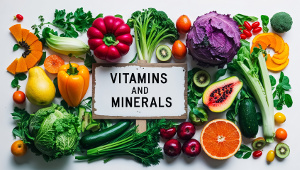
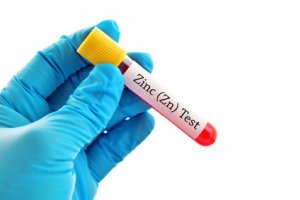 According to a new study that is published in the British Journal of Nutrition, even minor
According to a new study that is published in the British Journal of Nutrition, even minor 
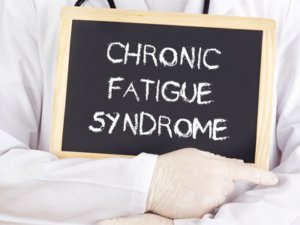 Perhaps so. More and more studies reveal that it helps to take large quantities of
Perhaps so. More and more studies reveal that it helps to take large quantities of 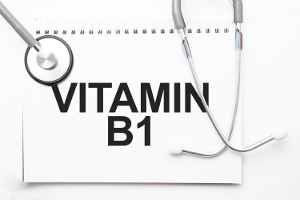 A team of scientists from Århus University Hospital has discovered that high-doses supplementation with
A team of scientists from Århus University Hospital has discovered that high-doses supplementation with 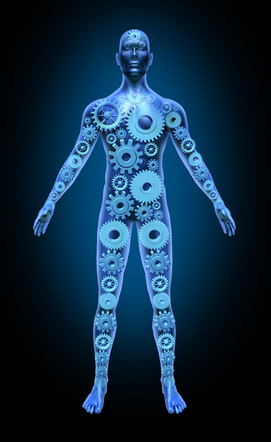 The cellular energy turnover takes place inside some small powerhouses called mitochondria. The condition of these tiny structures is determining for our energy levels and health. That is why it is vital that the mitochondria are adequately supplied with all the necessary nutrients. Q10 and magnesium play a particularly important role.
The cellular energy turnover takes place inside some small powerhouses called mitochondria. The condition of these tiny structures is determining for our energy levels and health. That is why it is vital that the mitochondria are adequately supplied with all the necessary nutrients. Q10 and magnesium play a particularly important role.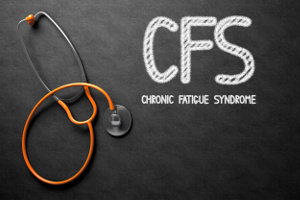
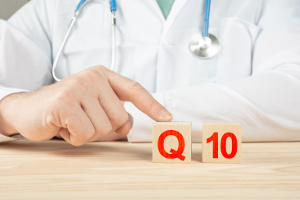
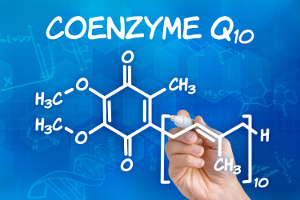
 Hormonal imbalances have broad implications and increase the risk of chronic fatigue, overweight, impaired fertility, dry mucosa, hot flushes, slow metabolism, breast cancer, and many other problems. Lack of essential nutrients contributes to such disruptions of the sensitive hormone system. This is also the case with hormone-disrupting compounds.
Hormonal imbalances have broad implications and increase the risk of chronic fatigue, overweight, impaired fertility, dry mucosa, hot flushes, slow metabolism, breast cancer, and many other problems. Lack of essential nutrients contributes to such disruptions of the sensitive hormone system. This is also the case with hormone-disrupting compounds. Vitamin B3 is water-soluble and because it does not get stored in the body we depend on regular intake of the nutrient. Niacin is a common term for nicotinic acid and nicotinamide. The body's metabolism is able to synthesise part of its required niacin from vitamin B6 and tryptophan, an amino acid which is primarily found in meat. Vitamin B3 is destroyed by heating.
Vitamin B3 is water-soluble and because it does not get stored in the body we depend on regular intake of the nutrient. Niacin is a common term for nicotinic acid and nicotinamide. The body's metabolism is able to synthesise part of its required niacin from vitamin B6 and tryptophan, an amino acid which is primarily found in meat. Vitamin B3 is destroyed by heating. Vitamin B6, also known as pyridoxine, is converted to the active forms, pyridoxal phosphate and pyridoxamine phosphate. Vitamin B6 is water-soluble and because it does not get stored in the body we depend on regular intake of the nutrient. Vitamin B6 is destroyed by heating and light.
Vitamin B6, also known as pyridoxine, is converted to the active forms, pyridoxal phosphate and pyridoxamine phosphate. Vitamin B6 is water-soluble and because it does not get stored in the body we depend on regular intake of the nutrient. Vitamin B6 is destroyed by heating and light. "After about one week of taking the Q10 supplement I could feel a huge difference," says 23-year old Alan Piccini, who has been suffering from extreme fatigue and muscle aches ever since he was a child.
"After about one week of taking the Q10 supplement I could feel a huge difference," says 23-year old Alan Piccini, who has been suffering from extreme fatigue and muscle aches ever since he was a child. “Taking capsules with co-enzyme Q10 has freed me of the severe side effects of my cholesterol lowering medicine,” Mrs Franken explains.
“Taking capsules with co-enzyme Q10 has freed me of the severe side effects of my cholesterol lowering medicine,” Mrs Franken explains.